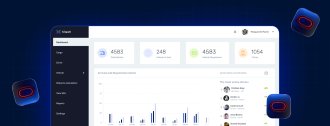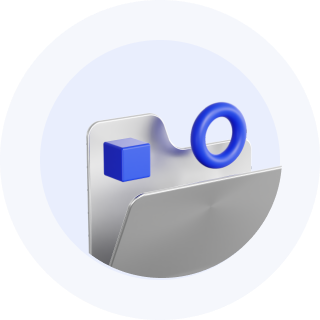
Contact us
Our team would love to hear from you.

Low-code development is no longer a niche approach. It’s growing at 21% annually, expected to reach $30 billion by 2028, and is already used by 87% of enterprise developers for at least part of their work. Oracle APEX, also known as Application Express, is one of the most popular, practical, and secure tools for enterprises, with over 2,000 new apps created daily. Running natively on Oracle Database, this framework enables the development of responsive and scalable apps directly on top of existing data. That means no data movement, no duplication, and no exposure to external systems.
Oracle APEX is best-suited for organizations:
Companies worldwide prefer Oracle APEX to build business-critical apps on Oracle Database. Here’s what makes this platform a strategic choice.
APEX is used to solve real, high-impact business challenges. Among the most common scenarios are:
Oracle APEX is most valuable for organizations operating with mission-critical data, strict regulations, and constant change, requiring systems to update quickly. These challenges are common in the following industries:

Our Oracle APEX application development services begin when we dive into your business processes, requirements, challenges, and objectives to map out the most effective way to extend your existing data infrastructure with APEX apps.
As a part of our APEX web design services, our architects draft the app structure while our UI/UX experts prepare interface concepts to ensure ease of use across devices.
Our Oracle APEX developers build the app directly on top of your Oracle Database, ensuring the solution aligns with your enterprise security and compliance policies.
We rigorously test all components and validate performance, role-based access control, encryption, and regulatory compliance. Our team proactively identifies and addresses any issues to ensure the solution is ready to go live.
Depending on where your Oracle Database resides—in the cloud, on-premises, or in a hybrid environment—we smoothly deploy your APEX app, minimizing downtime and service interruptions.
Our Oracle APEX mobile development services don’t stop after the launch. We monitor the system, gather feedback, and release necessary updates. Whether it’s optimizing performance or adding new functionality, we are here to support you.
APEX isn’t a default answer to every problem, but if you already use Oracle Database, work in a regulated environment, need to scale fast, and want to cut costs, APEX web development is the way to go. You don’t have to start from scratch, your data remains within systems, and you don’t pay for an extra license. Is APEX right for you? Let’s talk.

Low-code is a development approach that uses drag-and-drop components and prebuilt modules and templates instead of manual coding.
Yes, Oracle APEX supports integration with third-party systems through REST and SOAP services.
Maintaining an APEX app typically requires knowledge of SQL and PL/SQL, along with an understanding of Oracle Database architecture, web development practices, RESTful web services, design techniques, performance optimization methods, and more. Although APEX minimizes the use of coding, proficiency in programming languages like JavaScript can greatly enhance app functionality.
APEX relies heavily on predefined themes and templates, which can limit customization without a skilled developer to extend the UI through traditional coding methods.
Additionally, APEX can be hard to manage for large or complex apps. Professional developers can address this challenge through database partitioning, query optimization, and regular performance monitoring.
You can start by contacting our Oracle APEX software development company. We’ll review your current IT infrastructure, assess integration and compliance requirements, provide Oracle APEX consulting, and then design a solution tailored to your objectives.
Can’t find the answer you are looking for?
Contact us and we will get in touch with you shortly.
Our team would love to hear from you.
Fill out the form, and we’ve got you covered.
What happens next?
San Diego, California
4445 Eastgate Mall, Suite 200
92121, 1-800-288-9659
San Francisco, California
50 California St #1500
94111, 1-800-288-9659
Pittsburgh, Pennsylvania
One Oxford Centre, 500 Grant St Suite 2900
15219, 1-800-288-9659
Durham, North Carolina
RTP Meridian, 2530 Meridian Pkwy Suite 300
27713, 1-800-288-9659
San Jose, Costa Rica
C. 118B, Trejos Montealegre
10203, 1-800-288-9659